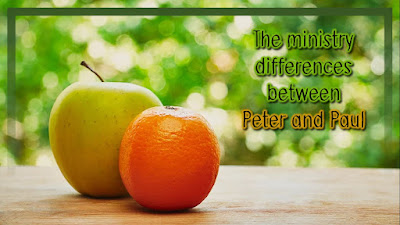The book of Acts revolves primarily around 2 apostles, Peter and Paul. One could divide the book of Acts as follows. Chapters 1-12 focus on Peter as the main apostle to the Jews, and chapters 13-28 focus on Paul as the apostle to the Gentiles.
Galatians 2:7-8 But contrariwise, when they saw that the gospel of the uncircumcision was committed unto me, as the gospel of the circumcision was unto Peter; 8 (For he that wrought effectually in Peter to the apostleship of the circumcision, the same was mighty in me toward the Gentiles)






